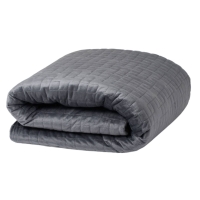Hormones are difficult. They have an effect on the whole lot from our durations (opens in new tab) to our aggressive urges, our bodily and psychological adjustments round being pregnant (opens in new tab), and, after all, the menopause (opens in new tab).
However what really occurs to our hormones (opens in new tab) throughout menopause? And what’s the important need-to-know data? “Throughout perimenopause (opens in new tab) our ovaries begin to produce much less of our feminine intercourse hormones: oestrogen and progesterone,” explains menopause physician, co-author of The Peri-menopause Resolution and Harper Clinic (opens in new tab) founder Dr Shahzadi Harper (often known as The Perimenopause Physician (opens in new tab)). “Our hormone ranges begin to fluctuate however proceed to pattern downwards till we get to menopause when the ovaries cease producing hormones and that is when menstruation stops.”
Lack of knowledge in the case of perimenopause and menopause – and the impact our hormones can have on our our bodies – is rife. Dr Harper desires to chop via the confusion and make menopause a a lot easier and better-understood course of. Right here, we caught up together with her to seek out out what you actually have to know concerning the menopause and your hormones. Right here’s her straight-talking, no-nonsense, evidenced-based recommendation…
3 need-to-knows about your hormones
1. Hormones can begin to change ahead of you assume
Shock, the menopause isn’t simply restricted to older girls with gray hair. “Perimenopause is usually misunderstood as a result of menopause is used as an umbrella time period for the whole lot,” explains Dr Harper. “The one factor that I want everyone understood about their hormones is that they will begin to change ahead of you assume.”
Within the UK, the common age of menopause is 51, whereas the common age of perimenopause is 47.5. In fact, it’s fully completely different for everybody – and whereas uncommon (solely 5%), some girls can expertise early menopause (opens in new tab) (earlier than the age of 45). In case your durations begin to get irregular earlier than the age of 40 or they cease fully earlier than the age of 45, it’s value going to your physician, advises Dr Harper.
“I usually say in case you do not feel like your self or in case you’ve observed a change in your durations – it will possibly simply be so simple as your cycle size is shorter, going from 28-30 all the way down to 26 days – then that may very well be the start of perimenopause,” she says.
2. There’s no one-size-fits-all perimenopause
“There’s no one-size-fits-all set of signs (opens in new tab) that outline perimenopause,” writes Dr Harper in The Peri-menopause Resolution. “It’s a mix. And in case your blood take a look at comes again regular, you may assume you possibly can’t presumably be in perimenopause. What you’ll want to know is that this: it’s not concerning the numbers; it’s about how you’re feeling”.
The most typical signs attributable to hormones, and the discount in oestrogen, are adjustments to our durations, she explains. However perimenopausal signs aren’t simply restricted to bodily signs like scorching flushes and night time sweats – vasomotor signs – “there are additionally psychological signs which have much less consciousness equivalent to nervousness, low temper, emotions of overwhelm,” she says. “It’s additionally vital to notice signs like vaginal dryness and the way the drop in oestrogen can have an effect on our pores and skin and hair.”
Whilst you could hear that there are 34 signs of perimenopause to look out for, there are sometimes much more. “The problem is becoming a member of the dots of these signs collectively to find you don’t simply really feel drained, or flat, or obese, in isolation. They’re all related.”
3. You’ve gotten the facility
“Though perimenopause is a pure course of, you should not have to place up with the whole lot it throws at you,” says Dr Harper.
By educating your self and being conscious of your signs you may make simple way of life changes to take management of your hormones.
“Having a nutritious weight-reduction plan and wholesome way of life may also help to enhance hormonal well being and stability,” she says. “Common train can have an effect on your hormones by enhancing blood circulation and circulation to your mind, coronary heart, and muscle tissues and triggers the discharge of pleased neurotransmitters that may assist to cut back nervousness and enhance temper. Whereas making certain that you’ve a weight-reduction plan with loads of greens (equivalent to darkish greens, together with broccoli and kale), fruit and omega three oil, will assist to help metabolism, handle your urge for food, scale back stress ranges and supply power.”
Her key message? “Take management of your perimenopause, don’t let it take management of you.”











